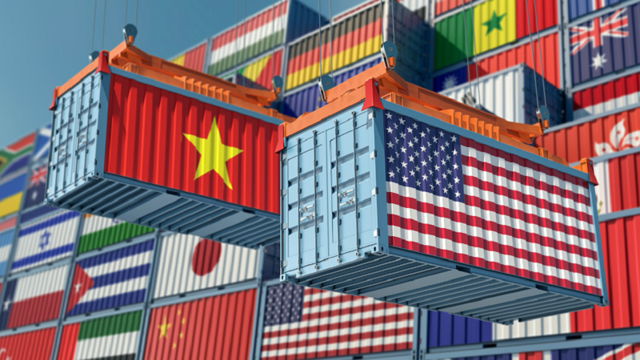
1. Major Shifts in Global Trade
Recent changes in U.S. trade policy have introduced new challenges to the global economic landscape. The announcement of “reciprocal tariffs” on April 2 caused market volatility and supply chain uncertainty. For Vietnam, the U.S. imposed tariffs as high as 46% on its exports, making it one of the most heavily affected countries.
Subsequently, in the April 9 announcement, the U.S. provided a 90-day consultation period during which countries could adjust their tariff levels. Temporary tariff measures were also established, applying different rates to specific goods and countries.
2. Immediate Response Strategies
For Vietnamese producers and exporters shipping products to the U.S., even a temporary 10% tariff can significantly impact profits due to risk allocation in existing contracts. Therefore, all related contracts must undergo legal review and careful assessment for trade solutions (ideally after the U.S. buyer/importer commits to the contractual terms).
Key contract elements requiring expert review include:
- Governing law (e.g., Vietnamese law or U.S. state law)
- United Nations Convention on Contracts for the International Sale of Goods (CISG)
- International Commercial Terms (Incoterms)
- Force Majeure clauses
- Material Adverse Change (MAC) clauses
- Dispute resolution mechanisms
- Available remedies
3. Incoterms Analysis
The Incoterms agreed upon by both parties are crucial and determine who bears the costs, including transportation, insurance, and especially import duties and tariff fees. The selected Incoterms directly affect which party is financially responsible for the new tariffs.
Exporters are advised to select terms that ensure tax liability lies with the importer, such as DDP (Delivered Duty Paid), where the seller (exporter) pays the import duty. However, terms like EXW (Ex Works), FCA (Free Carrier), FOB (Free on Board), CFR (Cost and Freight), CIF (Cost, Insurance, and Freight), etc., typically shift tax responsibility to the buyer.
4. Force Majeure Considerations
Vietnamese manufacturers may instinctively seek relief under force majeure clauses. However, there are significant challenges:
While it may include “acts of government,” it is debatable whether these tariffs qualify as unforeseeable events since Trump clearly stated his trade views during his campaign.
The critical issue is the financial burden allocation, not the ability to fulfill the contract.
5. Applicability of Material Adverse Change (MAC) Clauses
For existing contracts, a MAC clause might be a better option for renegotiation or termination. Companies can argue that the tariffs significantly increase costs, disrupt supply chains, and fall outside the original agreement’s scope, warranting clause review in light of the new economic context.
For future contracts, Vietnamese exporters should consider adding or amending MAC clauses to include significant changes in the importing country’s trade policy, such as new or increased tariffs. This will allow exporters to request exemptions or suspend obligations if such circumstances arise.
6. Strategic Adjustments
After clarifying immediate options, both parties should explore strategies to renegotiate contracts. Instead of relying solely on broad MAC clauses, consider adding new tax-shifting provisions to directly address additional costs and liabilities. Effective clauses may include:
- Cost-sharing structures: For example, a tiered design where the supplier absorbs a certain amount of tariffs, and the buyer covers the rest.
- Notification and submission mechanisms: Establishing a clear process for timely communication of tariff impacts, with supporting documentation.
- Price elasticity adjustment mechanisms: Including triggers for periodic renegotiation, automatic adjustment mechanisms (with reasonable limits), or other tools to respond to rapid global market changes.
- In case of termination, both parties should carefully assess financial impacts, such as damages and penalties under applicable laws. The outcome of any negotiation should be documented in a formal settlement, considering potential tax implications.
7. The Importance of Tariff Shock Mitigation and Tax Savings Strategies
Facing rising tariffs, companies must prioritize effective mitigation measures and tax-saving strategies. The added tariffs, combined with existing tax burdens, can severely erode operating budgets and profit margins. Without proactive measures, companies risk increased costs and supply chain disruptions. However, if appropriate strategies are implemented effectively, they can not only alleviate short-term financial pressures but also build long-term business resilience and global competitiveness. In today’s rapidly evolving trade environment, these strategies are essential to maintain cost efficiency, market share, and business continuity.
Exporters who act decisively during this pivotal moment will be best positioned to thrive under the new regime in the future.
